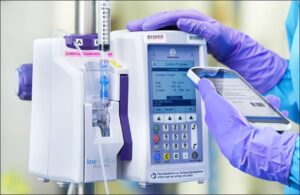
ICU Medical initiated a recall of replacement batteries for certain infusion systems on March 22, 2023. The recall affects its Plum 360, Plum A+ and Plum A+3 infusion systems.
The infusion systems provide fluid to patients in precisely controlled infusion amounts and rates. They deliver blood or blood products, drugs and other fluid mixtures through subcutaneous, intramuscular, intravenous, and intrathecal administration. Their batteries and replacement batteries are used when the pump is not plugged into AC power. An example of this occurs during patient transport.
According to an FDA notice, ICU Medical distributed affected devices between Feb. 7, 2022, and Dec. 22, 2022. To date, the recall impacted 1,904 devices in the U.S.
ICU Medical received 54 (Plum 360) and 465 (Plum A+/A+3) complaints regarding this issue. It received no reports of injuries or deaths. However, the FDA identified an adverse event that may relate to the recall issue.
About the ICU Medical recall
ICU Medical recalled the replacement batteries due to a manufacturing defect. This defect substantially diminished how long the batteries can run the system. If the pump uses battery power with no AC power backup available, the system may shut down an ongoing infusion. It may power down sooner than expected.
This issue could cause serious injury to death to patients, the FDA said. This could occur due to interruption, under-infusion, or delays in the delivery of critical fluids, blood products and medications.
ICU Medical told users to keep the pump plugged into AC power whenever possible. Users should also ensure a full charge for the battery before disconnecting from AC power.
The company also warned to closely monitor the battery status indicator once users disconnect the pump from AC power. This helps to ensure sufficient battery capacity to power the pump. Users should also have a backup pump available during all infusions, particularly when infusing critical medications. If the pump displays a “replace battery” alarm, users should continue the infusion with a different pump. They should remove the affected pump from clinical use until they replace the battery.
